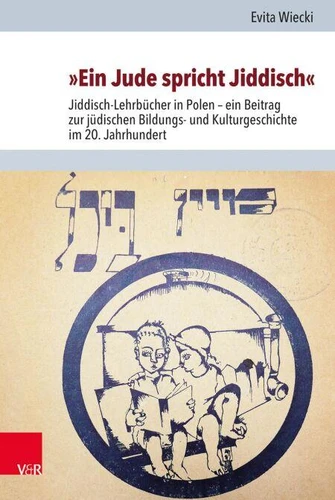»Ein Jude spricht Jiddisch«. Jiddisch - Lehrbücher in Polen – ein Beitrag zur jüdischen Bildungs - und Kulturgeschichte im 20. Jahrhundert
Par : , ,Formats :
Disponible dans votre compte client Decitre ou Furet du Nord dès validation de votre commande. Le format PDF est :
- Compatible avec une lecture sur My Vivlio (smartphone, tablette, ordinateur)
- Compatible avec une lecture sur liseuses Vivlio
- Pour les liseuses autres que Vivlio, vous devez utiliser le logiciel Adobe Digital Edition. Non compatible avec la lecture sur les liseuses Kindle, Remarkable et Sony
 , qui est-ce ?
, qui est-ce ?Notre partenaire de plateforme de lecture numérique où vous retrouverez l'ensemble de vos ebooks gratuitement
Pour en savoir plus sur nos ebooks, consultez notre aide en ligne ici
- Nombre de pages312
- FormatPDF
- ISBN978-3-647-57063-1
- EAN9783647570631
- Date de parution11/03/2019
- Protection num.pas de protection
- Taille75 Mo
- Infos supplémentairespdf
- ÉditeurVandenhoeck & Ruprecht
Résumé
Towards the end of the 19th century, Yiddish, the mother tongue of the majority of Jews in Eastern Europe, ceased to be a mere "jargon" and became a full-fledged language of high culture and source of identity politics. Education played a vital role in this process, yet little is known about its development. Taking textbooks written between 1886 and 1964 for courses taught in Yiddish as guideposts, Evita Wiecki portrays the history of Yiddish education and culture in Poland.
It is a history that, despite marked changes and the holocaust, displays significant continuities.
It is a history that, despite marked changes and the holocaust, displays significant continuities.
Towards the end of the 19th century, Yiddish, the mother tongue of the majority of Jews in Eastern Europe, ceased to be a mere "jargon" and became a full-fledged language of high culture and source of identity politics. Education played a vital role in this process, yet little is known about its development. Taking textbooks written between 1886 and 1964 for courses taught in Yiddish as guideposts, Evita Wiecki portrays the history of Yiddish education and culture in Poland.
It is a history that, despite marked changes and the holocaust, displays significant continuities.
It is a history that, despite marked changes and the holocaust, displays significant continuities.



